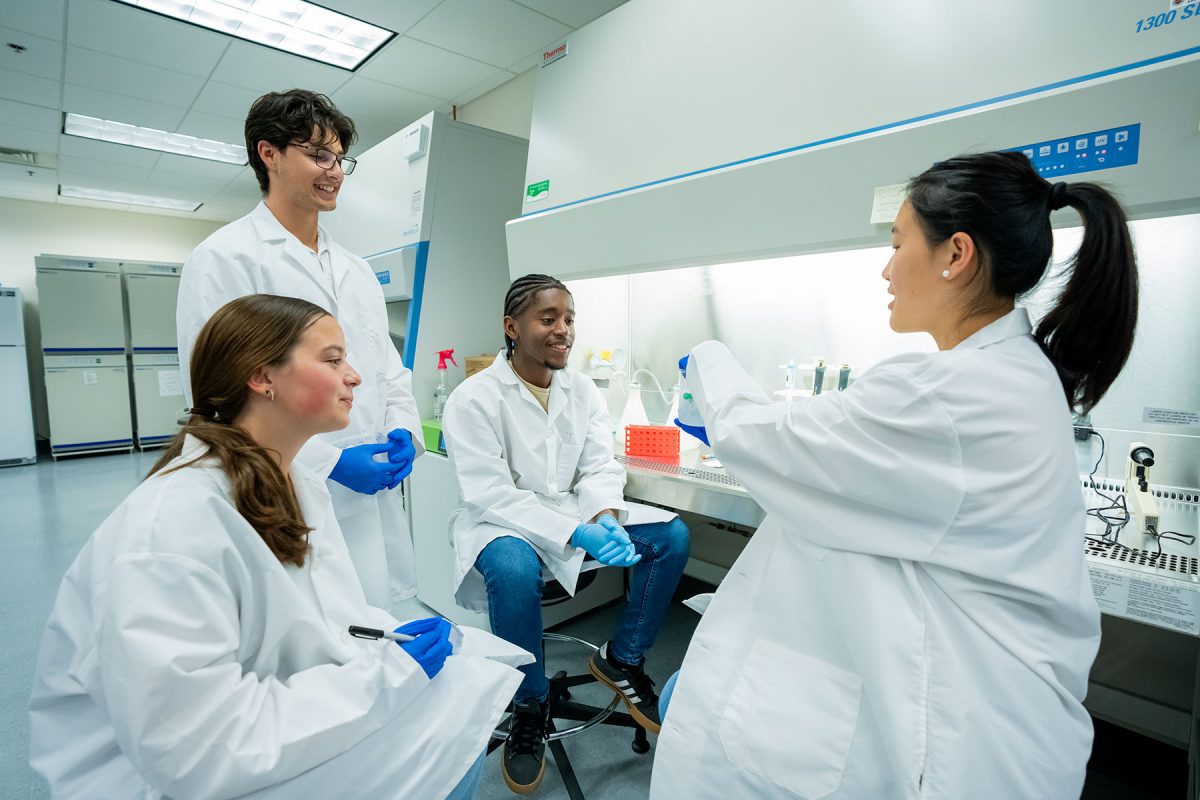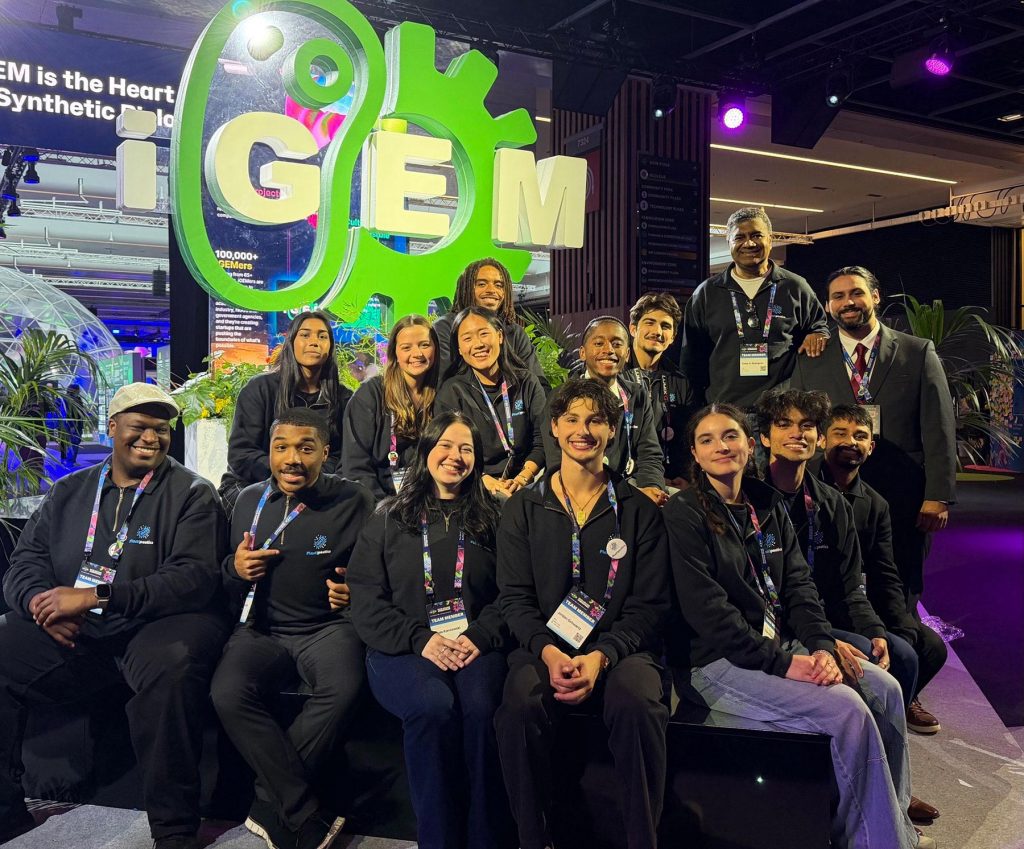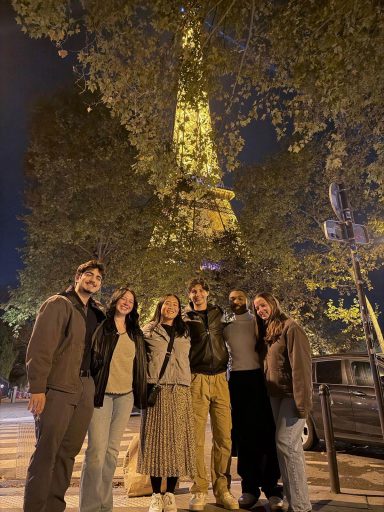
Florida State University's International Genetically Engineered Machine (iGEM) team won a gold medal for the second year in a row at the world's largest annual synthetic biology competition.
Thirteen students from the team, one student adviser and two principal investigators attended the iGEM Grand Jamboree, held from Oct. 28-31 at the Paris Convention Centre in France, where they were awarded a gold medal for their research on microplastics.
FSU's iGEM team designed, built and tested microplastic-binding proteins intended to be taken orally and work in the human gastrointestinal tract to safely eliminate microplastics from the body and prevent them from depositing in other organs such as the brain or placenta.
Recent research has shown correlations between microplastics and adverse health outcomes such as Alzheimer's disease, Parkinson's disease, gastrointestinal disorders, cancers and other illnesses.

"The gold medal proved that we've established ourselves as a very competitive iGEM program in the United States," said iGEM team leader and exercise physiology student Jordan Schwartz. "We were also humbled seeing the other teams' projects knowing that there is no limit to what can be accomplished in any field with synthetic biology. Interacting with teams from across the U.S. and the world helped us cultivate new ideas, network with others in the field and identify opportunities for growth."

FSU competed alongside 420 other teams from around the world, including groups from Stanford University, Yale University, the University of Cambridge and Tsinghua University.
FSU's team remains the most successful team in Florida, winning the state's first back-to-back gold medals. Since 2017, FSU iGEM teams have earned one bronze, four silver and three gold medals.
The team consists of students representing six colleges at FSU plus their faculty advisers; primary principal investigator Cesar A. Rodriguez, a research faculty member and entrepreneur in residence in the College of Medicine; and secondary principal investigator David Montez, an associate director at FSU's Center for Undergraduate Research and Academic Engagement.
"We are incredibly proud of our hardworking and talented iGEM team," Montez said. "FSU's sustained success at the Jamboree shows our university's impressive strength in the health and innovation spaces. These are students who think creatively, harness interdisciplinary research and work together to pursue complex solutions to real-world problems that affect real people in Florida and beyond."
Community Impact Award
Some members of FSU's 2024 team also won an award at the Grand Jamboree's BioInnovation Summit event, where students can pitch biotech innovations to investors, industry leaders and others.
Three former iGEM team members who studied a rare metabolic disorder during their competition year presented the work they began in iGEM and have continued in the form of a startup company called Esperance Healthcare.
The students earned the Community Impact Award for their patent-pending diagnostic breathalyzer device, EsperSense, which can be used to guide a patient's treatment for trimethylaminuria (TMAU), a disease that causes a strong body odor released through sweat, breath and urine, and a cell-based therapeutic, E. esperance, for TMAU. The research and development of E. esperance has been funded by the College of Medicine's Florida Institute for Pediatric Rare Diseases."Since 2017, the FSU iGEM program has nurtured leadership skills that our alumni are using to successfully complete medical and graduate programs, and maintain research positions in the private sector," Rodriguez said. "The commitment that FSU has made each year ensures the team's success and supports the future of bio-innovation in the state of Florida."
To learn more about FSU iGEM, visit med.fsu.edu/igem and cre.fsu.edu/undergraduate-research/fsu-igem.






